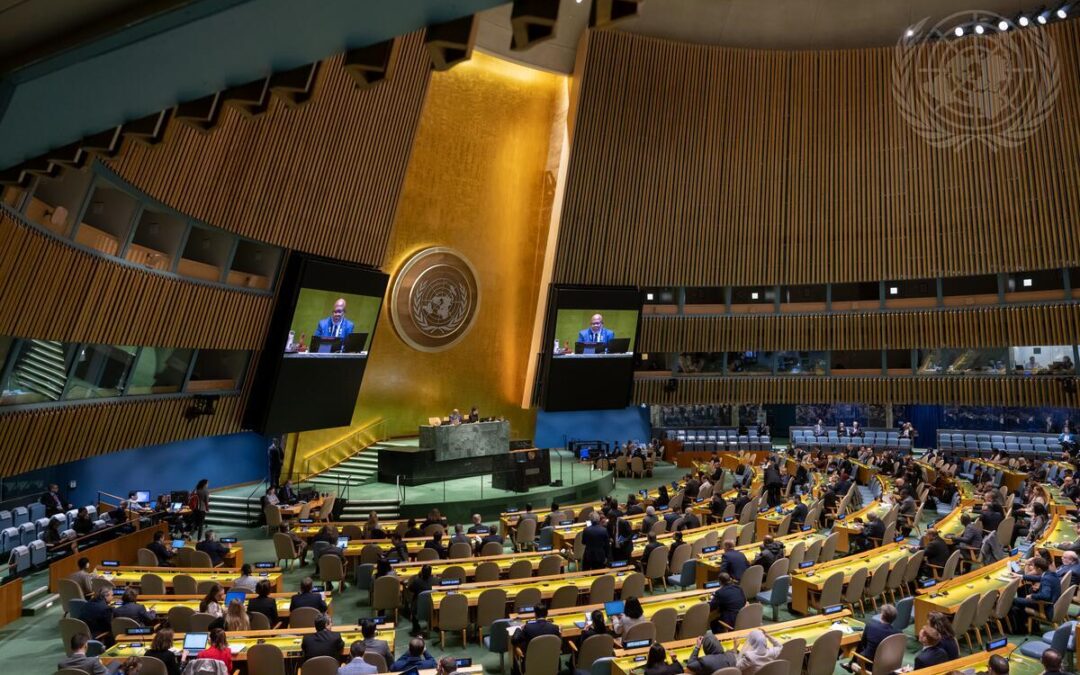New York (Fena) – The United Nations General Assembly adopted the Resolution on the Genocide in Srebrenica on Thursday, with 84 countries voting in favor, 18 against, and 68 abstaining.
Among the European Union countries, Austria, Belgium, Bulgaria, Croatia, Czech Republic, Denmark, Estonia, Finland, France, Germany, Netherlands, Ireland, Italy, Luxembourg, Poland, Portugal, Romania, Slovenia, Spain, Sweden, and Switzerland voted in favor of the Resolution.
Slovakia, Cyprus, and Greece abstained, while Hungary voted against it.
Before the adoption of the Resolution, Germany’s permanent representative to the UN, Antje Leendertse, stated that the decision to proclaim July 11 as the Day of Remembrance and Commemoration of the Genocide in Srebrenica would bridge the gap in institutional memory.
Serbian President Aleksandar Vučić, who called the Resolution “extremely politicized” before the vote, said at the end of the session that “those who wanted to stigmatize the Serbian people did not succeed.”
Bosnia and Herzegovina’s Foreign Minister Elmedin Konaković emphasized that his ministry would send a protest note today to all 19 countries that voted against the Resolution.
Is the European path of BiH under threat?
The adoption of the Resolution on the Genocide in Srebrenica has sparked a new wave of internal political conflicts that threaten to undermine the country’s stability and further slow its European path.
The Resolution has provoked strong reactions among the political representatives of the constituent peoples. While political parties based in Sarajevo welcomed the adoption of the Resolution as an important step towards reconciliation and confronting the past, Serbian parties in Bosnia and Herzegovina claim that it stigmatizes the entire Serbian people, even though it is not mentioned in the text of the Resolution.
Therefore, the president of the BiH entity, Republika Srpska (RS), Milorad Dodik, said that the RS Government decided to propose the “separation” of RS from Bosnia and Herzegovina.
– Dodik’s activities risk the future within Euro-Atlantic institutions that BiH citizens, including RS, desire. The path he proposes would ensure that the citizens of RS, their children, and grandchildren do not have a peaceful, prosperous life in the democracy they deserve – warned the US Embassy in BiH.
International representatives and the European Union have been appealing to Bosnian politicians for years to overcome differences and focus on the reforms needed for EU membership, but ongoing political crises and disagreements hamper progress.
However, the example of the adoption of the Resolution on the Genocide in Srebrenica again showed how deep the divisions in Bosnian society still are. (24.5.)
 go to the original language article
go to the original language article
